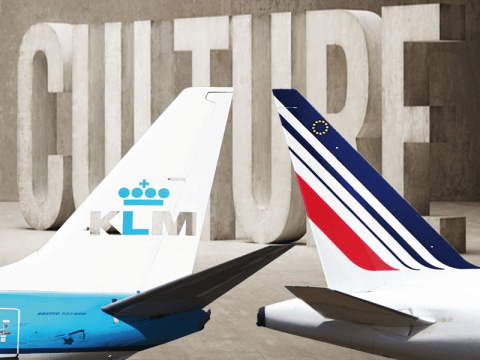Cultural Differences Troubling Air France-KLM Merger
A report commissioned by Air France-KLM to try and work out what is causing tensions within the airline company has discovered that cultural differences between Dutch and French employees are potentially ripping the merger apart.
Air France-KLM, which is the result of a 2004 merger, asked Philippe d’Iribarne from the French Institute of Science and Niels Noorderhaven of Tilburg University, to carry out the research which involved 47 interviews with Air France and KLM staff between January and April 2017.
In the 100-page report titled, “The relationship between Air France and KLM as experienced by the employees,” the researchers identified a clash of national cultures and an inability to understand each other’s languages as two of the main threats that are making the merged airline unmanageable.
“Mutual understanding between the French and the Dutch is often weak,” the report stated.
Cultures Apart!
“The French have the impression that the Dutch think only of money and are always ready to fight for profit. They are not afraid of anything, The Dutch think that the French are attached to a hierarchy and political interests which are not necessarily the same as the interests of the company … The extent to which employees are disillusioned is shocking. People are pessimistic, frustrated and burnt out because they feel that this is not listened to.” Guardian
Other acute differences which were put down to culture included the fact that Air France managers were said to think more about the company as a whole whereas Dutch/KLM managers only thought about KLM.
KLM managers apparently think of themselves as 'super cool' (or so the French say). KLM managers accuse the French of only thinking about keeping their own jobs and are constantly waiting for the French economy to explode and to see the partnership fail.
“The conclusion of this study identifies cultural differences and different visions, sometimes leading to difficulties, but also a common interest and the desire to find solutions in the interest of Air France-KLM group and each airline. During the coming period, we will see within Air France, KLM and Air France-KLM how we can learn together from the outcome and bring about improvements wherever necessary,” Air France said.
Cultural Differences are Normal in Mergers
This is not the first and it won't be the last time cultural differences impact a merger.
The Daimler-Benz Chrysler Merger of 1998 fell apart in very similar circumstances as American and German managers wanted very different things which led to the perception that it was no 'merger of equals'.
In 1999 British Steel and Dutch Royal Hoogovens decided to merge. The result was the Corus Group. Yet again it was a culture clash at management level which led to both sides pulling in opposite directions.
Some M&As can, with the right planning and approach, go very well. For example, after TATA's 2008 acquisition of Land Rover, the management structure was not changed. They left everything as it was which led to trust and a smooth transition process.
The role of culture, whether national, company or both, is all too often ignored in international M&As.
Even within a country when one company takes over another or merges with another, there will be tensions and challenges due to differences in company culture.
Throw cultural differences into the mix as well as you soon realise the challenges involved.
These challenges and issues are unnecessary. Had the businesses involved taken the time to equip essential staff with an understanding of the likely cultural dynamics involved in the mergers and critical considerations, then these issues would have been manageable. Despite the big names of these businesses, culture only becomes a 'thing' when it trips them up.
Whether it's tailored webinar cultural training with a country and training expert, or something more simple such as an off-the-shelf online Cultural Competence course, cultural training can help determine whether a venture is a success or a flop.
By accepting you will be accessing a service provided by a third-party external to https://www.commisceo-global.com/

 +44 0330 027 0207 or +1 (818) 532-6908
+44 0330 027 0207 or +1 (818) 532-6908
